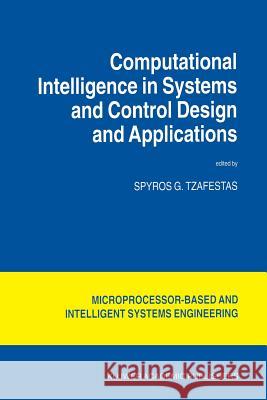Computational Intelligence in Systems and Control Design and Applications » książka
Computational Intelligence in Systems and Control Design and Applications
ISBN-13: 9781402003943 / Angielski / Miękka / 2001 / 376 str.
This book contains thirty timely contributions in the emerging field of Computational Intelligence (CI) with reference to system control design and applications. The three basic constituents ofCI are neural networks (NNs). fuzzy logic (FL) I fuzzy reasoning (FR). and genetic algorithms (GAs). NNs mimic the distributed functioning of the human brain and consist of many. rather simple. building elements (called artificial neurons) which are controlled by adaptive parameters and are able to incorporate via learning the knowledge provided by the environment, and thus respond intelligently to new stimuli. Fuzzy logic (FL) provides the means to build systems that can reason linguistically under uncertainty like the human experts (common sense reasoning). Both NNs and FL I FR are among the most widely used tools for modeling unknown systems with nonlinear behavior. FL suits better when there is some kind of knowledge about the system. such as, for example, the linguistic information of a human expert. On the other hand. NNs possess unique learning and generalization capabilities that allow the user to construct very accurate models of nonlinear systems simply using input-output data. GAs offer an interesting set of generic tools for systematic random search optimization following the mechanisms of natural genetics. In hybrid Computational Intelligence - based systems these three tools (NNs, FL, GAs) are combined in several synergetic ways producing integrated tools with enhanced learning, generalization. universal approximation. reasoning and optimization abilities.











